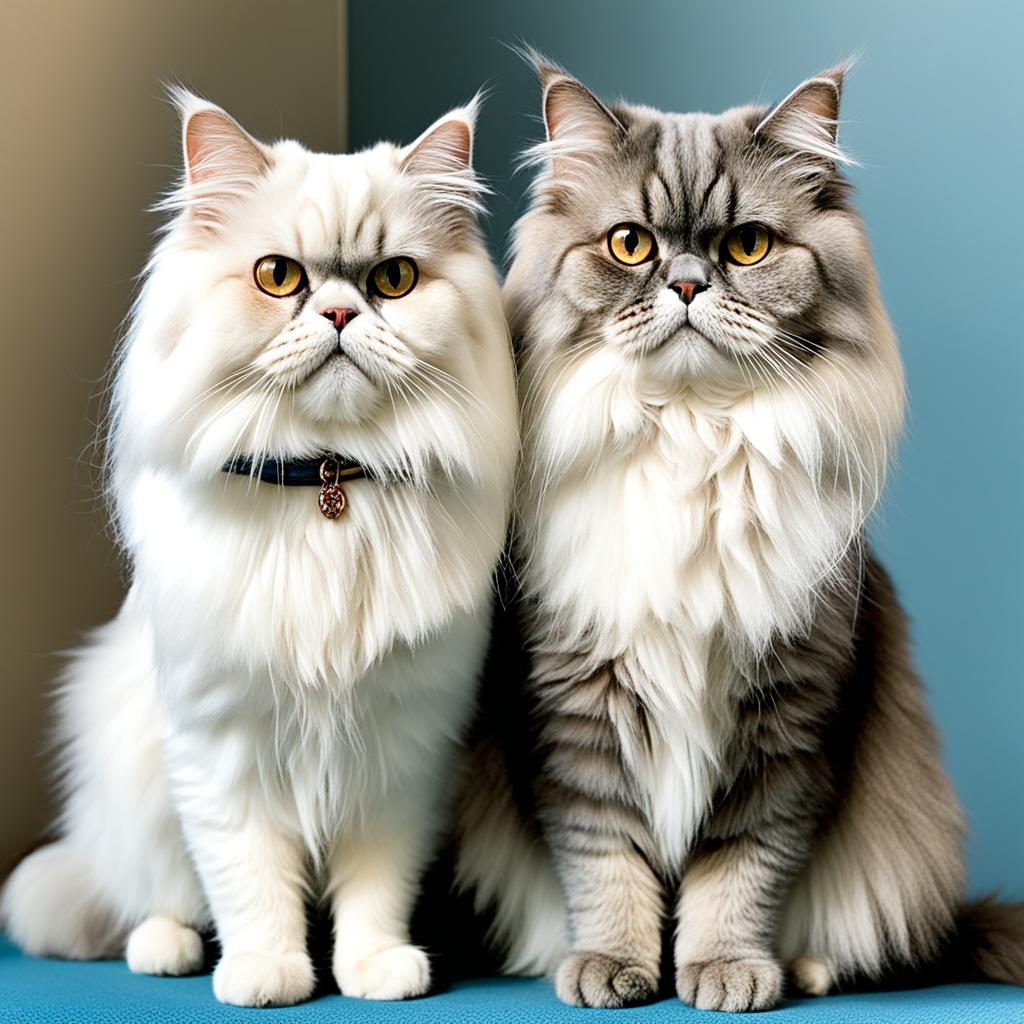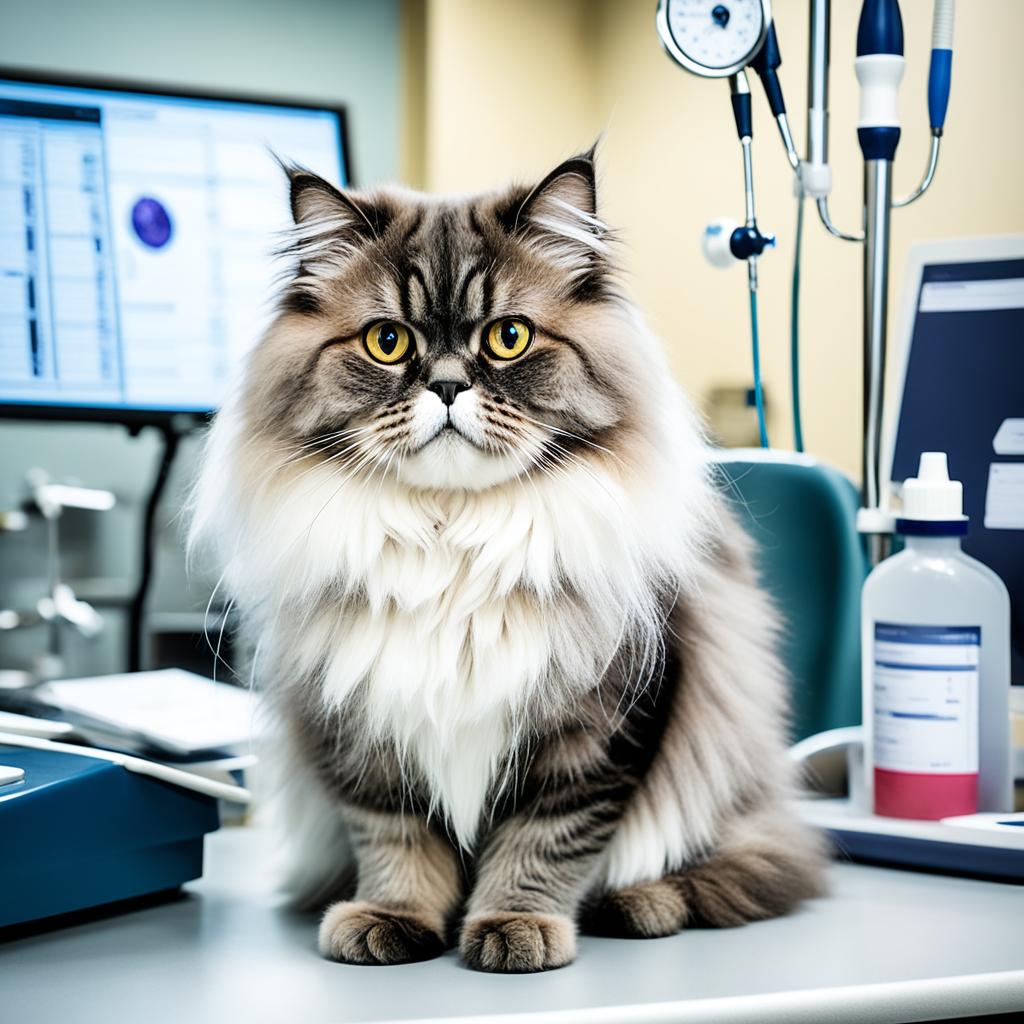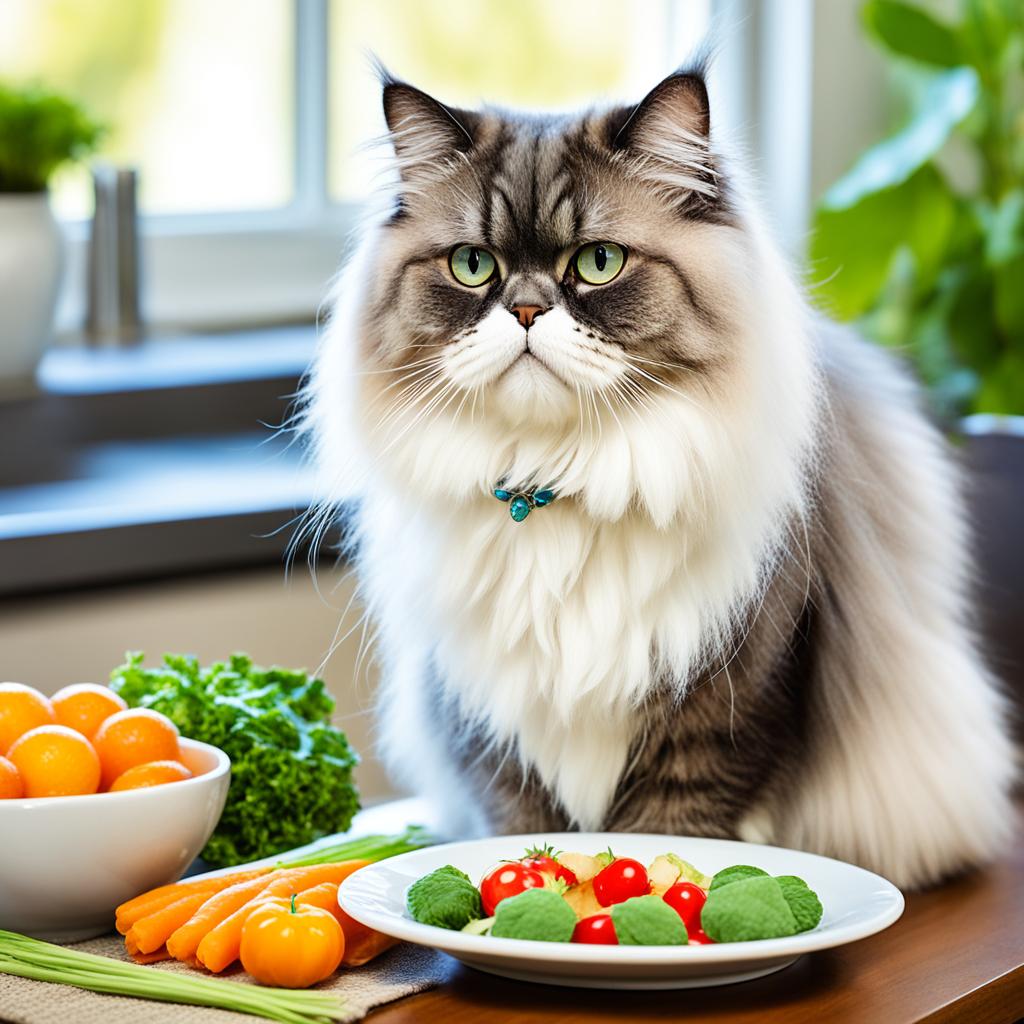Persian cats become “senior” at around 11 years old. This is like humans reaching their golden years. Just as we need specific routines, these cats need tailored grooming care as they age. It’s important to acknowledge their changing needs. This includes addressing reduced senses, poorer digestion, and lower stress tolerance. We must provide the care and comfort they deserve.
As Persian cats get older, they become less active, resting more. Unfortunately, this makes them prone to health issues like dental problems and arthritis. It’s vital to keep up with at-home care. Be on the lookout for any changes in their body or behavior. Regularly trim their claws to avoid material mishaps. And gently groom their coat to keep it healthy. Your devoted care is essential for their hygiene and happiness.
Key Takeaways
- Senior Persian cats are considered elderly from the age of 11.
- Reduced sensory capabilities necessitate adjustments in grooming routines.
- Decreased activity levels increase susceptibility to health issues like dental disease and arthritis.
- Regular claw trimming helps prevent discomfort and accidents.
- Soft and gentle grooming supports their reduced capacity for self-grooming.
- Attentive caregiving enhances their overall well-being and hygiene.
Understanding the Aging Process in Persian Cats

As Persian cats age, they go through a lot of changes. These include how they behave and how their bodies work. It’s important to know this to keep them healthy.
Behavioral Changes
Older Persian cats might not want to play or go outside much. They might act like they’re scared or need more of your attention. This is their way of saying they need you close by for comfort.
Physiological Changes
As Persian cats get older, they may not see or hear as well. Their skin also gets less flexible, so grooming is crucial. These changes mean they need special care for their health and hygiene.
Common Health Issues
Older Persian cats can face health problems like kidney disease or diabetes. It’s important to visit the vet often to catch and treat these issues early. Making their living space comfortable and keeping an eye on their teeth is also key.
| Signs | Behavioral Changes | Physiological Changes | Health Issues |
|---|---|---|---|
| Reduced Activity | Less Outdoor Activity, Reduced Hunting Desire | Decline in Sensory Functions, Decreased Immune Responsiveness | Kidney Disease, Diabetes, Gastrointestinal Disorders |
| Increased Dependency | More Clingy, Signs of Insecurity | Loss of Skin Elasticity | Dental Disease |
The Necessity of Regular Vet Visits

It’s very important to take your senior Persian cat to the vet often. Doing so keeps them healthy and happy. Old Persian cats need regular checkups to catch any health issues early.
Importance of Wellness Exams
Wellness exams every six months are key for Persian cats getting older. These appointments let the vet run tests and check your cat’s health. Finding problems like kidney disease early on can make a big difference for your cat.
Frequency of Dental Checks
Don’t forget about your Persian cat’s teeth at the vet. Dental problems are common in older cats. But, getting their teeth checked and cleaned can prevent bigger health issues.
Assessing Mobility and Arthritis
Watching your Persian cat’s ability to move is crucial as they get older. Arthritis is a big issue for senior cats. The vet can suggest ways to make your cat more comfortable and active.
Taking your Persian cat to the vet regularly is vital for their health. It helps them live out their older years happily.
Grooming Needs of Senior Persian Cats?

As Persian cats get older, taking care of them changes a lot. You must adjust their grooming routine to keep them happy and in good health. Since older Persians can’t groom themselves well, you must help them by brushing their coats often.
Maintaining their Luxurious Coat
Old Persian cats need their coats brushed regularly and gently. Brushing them stops their fur from tangling, especially on their backs and near the tail. Using a soft brush keeps it pain-free for them and keeps their fur looking great.
Managing Hairballs
Handling hairballs for these cats is very important as they age. They get more hairballs because they can’t groom like before. You can give them special food and supplements to help. And brushing them more often can also cut down on hairballs.
Regular Claw Trimming
Older Persian cats need their claws checked and trimmed regularly. Their claws might grow too long and hurt them. Cutting their claws helps avoid problems with snagging on things. Do it gently with the right tools to make it easy for both of you.
Diet and Hydration Tips for Elderly Persian Cats

Aging Persian cats need special diets due to their lower energy and slower digestion. It’s key to feed them a balanced, senior cat food. This food type is made for their nutritional needs and deals with common problems of old age.
How you serve meals matters for older cats. They like meals at room temp and in quiet spots. Make sure not to rush meal times. It’s best to give them small meals a few times a day.
Keeping them hydrated is also vital. This stops dehydration, very important for those with kidney troubles. Adding more water bowls at home can help. Some cats like a water fountain more than still water.
It’s vital to watch how much they eat and drink. This can help catch health problems early. Keep an eye on their weight and how they use the litter.
Wet food can be good for them since it has more water. Or, you can try flavoring their water or food to make it more tasty. These tricks, plus focusing on water, will keep them healthier.
Making sure they’re groomed well and fed right is important for older Persians. By watching closely and being ready for any changes, you can make them happier.
Conclusion
Your older Persian cat needs extra care to make their senior years comfy. You must tweak your grooming and feeding routines to suit their needs. Also, seeing the vet often is key to catch and treat problems early. This really helps your cat stay healthy in old age.
Changing their meals and how they drink water is important. Use food made for seniors. And keep their water bowl full. This helps avoid things like dehydration. Plus, regular grooming and checkups add to their happiness.
By loving and looking after your senior Persian cat, you help them age well. Stay on top of their health and respect their changing habits. This way, they’ll keep being a loving part of your house. Their unique characters will bring you joy for years to come.
FAQ
What are the primary grooming needs of senior Persian cats?
Senior Persian cats need gentle brushing to stop mats and claw trimming. They also need help staying clean because they groom less. Care like this keeps their lovely coats and health in check.
How do behavioral changes manifest in aging Persian cats?
Older Persian cats might stop hunting and lose interest in the outdoors. They may become more reliant on you, feeling less secure and with poor senses. Understanding these changes aids in their proper care.
What are common physiological changes in elderly Persian cats?
As cats age, their senses, immune system, and skin health decrease. They also digest food less efficiently and handle stress poorly. Adjust your care to help them live comfortably.
What health issues are prevalent in senior Persian cats?
Kidney and dental diseases, diabetes, and stomach problems are common in older Persians. Watch for early warning signs to get them treatment sooner. This improves their life quality.
Why are regular vet visits crucial for senior Persian cats?
Biannual check-ups help spot and treat age-related health issues early. This is critical for managing problems like dental disease and arthritis. It keeps your senior Persian cat healthier and happier.
How should I manage my senior Persian cat’s luxurious coat?
Keep their coat clean and mat-free with gentle brushing. Focus on areas like their spine and hindquarters. Older cats may find grooming hard, so they need your help more than before.
Why is managing hairballs important for older Persian cats?
Hairballs can be very dangerous for senior Persians. Give them special food and supplements to ease this issue. This will help their stomach stay healthy.
What dietary modifications are necessary for senior Persian cats?
Older Persian cats should eat food rich in nutrients but easy to digest. Senior cat food is perfect for them. Serve it warm in a quiet place. This diet will support their health well.
How do I keep my senior Persian cat properly hydrated?
Offer them several water sources and consider making their water or food tastier. This is vital for cats with kidney problems. Keep an eye on how much they drink, adjusting as needed.
How frequently should I trim my senior Persian cat’s claws?
Trim your cat’s claws regularly to prevent them from becoming too long. Depending on how fast they grow, trimming every few weeks should be good enough.




